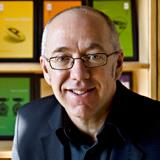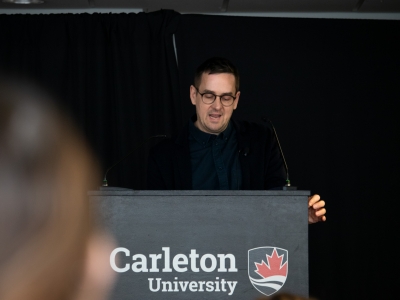Bill Cross on Why the 2015 Election Will Make History
 The Honourable Dick and Ruth Bell Chair for the Study of Canadian Parliamentary Democracy in the Department of Political Science.
The Honourable Dick and Ruth Bell Chair for the Study of Canadian Parliamentary Democracy in the Department of Political Science.
The first election campaign that Bill Cross remembers was the fiercely-contested 1976 U.S. Republican primaries between Ronald Reagan and Gerald Ford. A few years later, he was riveted to the 1979 Canadian election, which catapulted a young Joe Clark to power.
Since then, he’s watched, researched, and written about every election campaign along the way. And he believes this year’s Canadian federal election may very well make history.
What makes the 2015 Canadian federal election significant?
This is the first time in Canada’s history that we’ve had a truly three-way competition. It makes for an interesting dynamic in the campaign, but also poses an interesting question of what will happen after the election. If no one wins a majority, it leaves open the possibility of Canada’s first real federal coalition government.
Coalition governments are common in other parliamentary democracies, such as the U.K., Australia, and New Zealand. Why not here?
Coalitions have traditionally not been viewed as a legitimate option here. In my fourth-year class on the Westminster parliamentary system, I show television news clips that demonstrate the difference between Canada and the UK when faced with a minority election outcome.
For example, after the 2010 election in the UK resulted in no party winning a majority of the seats, the BBC announced, “Our exit polls show a hung parliament.”
Following that, there were a few days of uncertainty as to who would lead. There was a lot of horse trading and finally, the Conservatives reached a deal with the Liberal Democrats to form a majority coalition government, which was in power for five years.
But in Canada, when the Conservatives won a minority of seats in the 2008 election, the TV news anchors quickly announced a “Conservative minority government”. Stephen Harper appeared on television shortly thereafter to declare victory, which made it much more difficult for the Liberals and the NDP to form a coalition.
I think the conversation has progressed since 2008 and, if the seat totals are close this time, there will be a lot of pressure to form a coalition government.
After the 2008 election, Prime Minister Harper warned that a coalition government would be destabilizing. But you point out that coalitions may have some advantages.
They’re about power sharing, and by forming a multi-party majority government, they can maintain power for several years. It would be a very different dynamic than what we’re used to in minority governments.
On the other hand, you say that we’re seeing an Americanization of the election campaign. What do you mean by that?
It’s becoming increasingly dominated by the personalities of the leaders. It used to be that a leader would tout the strength of his team: for instance, Jean Chrétien lauded Paul Martin as finance minister.
We’re not hearing that at all now. Instead, the focus is on who will be the best prime minister, which doesn’t fit well within a parliamentary system.
In fact, you argue that the multiple leaders’ debates we’re seeing may not be a good thing.
They run the risk of completely focusing media and voter attention on the leaders and they fuel the impression that the leader wins the election, rather than the party.
This, in turn, leads to a strengthening of the winning leader’s personal mandate and an increasing centralization of power in the Prime Minister’s Office. That’s an argument many already make about the current Harper government.
It’s not my job to say if that’s a good or bad development, but I will say that it’s not consistent with the traditions of our parliamentary democracy. I think it would be better if, for example, a debate on economic issues featured the finance minister and his parliamentary critics.
The Faculty of Public Affairs is using this federal election to spark a conversation about civic engagement among youth. For instance, only 39% of youth voted in the 2011 federal election, versus 58% of voters overall. Why don’t more young people vote?
We did a study in which we interviewed students who were active in campus organizations at five universities. We asked them to rank which activities were most likely to lead to policy change in government, such as signing a petition, engaging in a boycott, and joining a political party, among others.
The students placed “joining a political party” last on the list. They described political parties as too hierarchical and didn’t think their participation would lead to any policy change.
The good news is that participation tends to increase when there’s a close race, so there’s hope that the youth turnout will be strong in October.
Friday, September 9, 2016 in Department of Political Science, FPA Voices, People
Share: Twitter, Facebook



